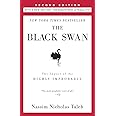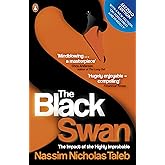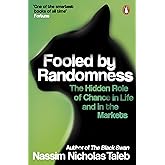Neu:
13,96€13,96€
KOSTENFREIE Retouren
GRATIS Lieferung Dienstag, 4. März
Oder schnellste Lieferung Montag, 3. März. Bestellung innerhalb 5 Min.
Auf Lager
Versand
Amazon
Verkäufer
Amazon
Rückgaben
Retournierbar innerhalb von 30 Tagen nach Erhalt
Zahlung
Sichere Transaktion
Mit „Gebraucht – Sehr gut“ sparen
7,71€7,71€
Lieferung für 3€ 1. - 3. März
Versand durch: ausverkauf Verkauft von: ausverkauf

Lade die kostenlose Kindle-App herunter und lese deine Kindle-Bücher sofort auf deinem Smartphone, Tablet oder Computer – kein Kindle-Gerät erforderlich.
Mit Kindle für Web kannst du sofort in deinem Browser lesen.
Scanne den folgenden Code mit deiner Mobiltelefonkamera und lade die Kindle-App herunter.
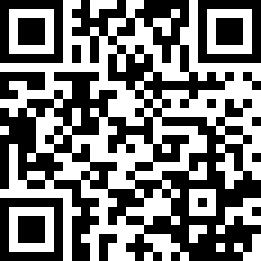
Bild nicht verfügbar
Farbe:
-

-
-
- Herunterladen, um dieses Videos wiederzugeben Flash Player


 Hörprobe
Hörprobe Dem Autor folgen
OK
Antifragile: Things that Gain from Disorder Taschenbuch – 6. Juni 2013
Kaufoptionen und Plus-Produkte
'Really made me think about how I think' - Mohsin Hamid, author of Exit West
Tough times don't last. Tough people do.
In The Black Swan, Taleb showed us that highly improbable and unpredictable events underlie almost everything about our world. Here Taleb stands uncertainty on its head, making it desirable, even necessary. The antifragile is beyond the resilient or robust. The resilient resists shocks and stays the same; the antifragile gets better and better.
Just as human bones get stronger when subjected to stress and tension, many things in life benefit from stress, disorder, volatility, and turmoil. What Taleb has identified and calls antifragile are things that not only gain from chaos but need it in order to survive and flourish.
Antifragile is a blueprint for living in a Black Swan world. Erudite, witty, and iconoclastic, Taleb's message is revolutionary: the antifragile, and only the antifragile, will make it.
'The hottest thinker in the world' Bryan Appleyard, Sunday Times
- Seitenzahl der Print-Ausgabe544 Seiten
- SpracheEnglisch
- HerausgeberPenguin
- Erscheinungstermin6. Juni 2013
- Abmessungen2.88 x 12.9 x 19.8 cm
- ISBN-100141038225
- ISBN-13978-0141038223
Wird oft zusammen gekauft
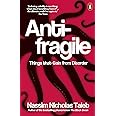
Weitere Artikel entdecken
Produktbeschreibungen
Pressestimmen
The hottest thinker in the world -- Bryan Appleyard ― The Sunday Times
A superhero of the mind -- Boyd Tonkin
Wall Street's principal dissident -- Malcolm Gladwell
A guru for every would-be Damien Hirst, George Soros and aspirant despot -- John Cornwell ― Sunday Times
Nassim Taleb, in his exasperating but compelling book Antifragile, praises "things that gain from disorder" - people, policies and institutions designed to thrive on volatility, instead of shattering in the encounter with it -- Oliver Burkman ― Guardian
More than just robust or flexible, it actively thrives on disruption -- Julian Baggini ― Guardian
Modern life is akin to a chronic stress injury. And the way to combat it is to embrace randomness in all its forms. . . Taleb is the great seer of the modern age ― Guardian
Something antifragile actively thrives under the impact of the unexpected...to embrace randomness rather than trying to control it ― The Sunday Times
Enduring volatility is one thing; what about benefiting from it? That is what Taleb calls 'antifragility' and he thinks that it is the ultimate model to aspire to - for individuals, financial institutions, even nations. . . May well capture a quality that you have long aspired to without having quite known quite what it is. . . I saw the world afresh ― The Times
Taleb takes on everything from the mistakes of modern architecture to the dangers of meddlesome doctors and how overrated formal education is. . . . An ambitious and thought-provoking read . . . highly entertaining ― Economist
This is a bold, entertaining, clever book, richly crammed with insights, stories, fine phrases and intriguing asides. . . . I will have to read it again. And again ― Wall Street Journal
[Taleb] writes as if he were the illegitimate spawn of David Hume and Rev. Bayes, with some DNA mixed in from Norbert Weiner and Laurence Sterne. . . . Taleb is writing original stuff-not only within the management space but for readers of any literature-and . . . you will learn more about more things from this book and be challenged in more ways than by any other book you have read this year. Trust me on this ― Harvard Business Review
What sometimes goes unsaid about Taleb is that he's a very funny writer. Taleb has a finely tuned BS detector, which he wields throughout the book to debunk pervasive yet pernicious ideas. . . . Antifragility isn't just sound economic and political doctrine. It's also the key to a good life ― Fortune
At once thought-provoking and brilliant, this book dares you not to read it ― Los Angeles Times
Klappentext
Just as human bones get stronger when subjected to stress and tension, many things in life benefit from stress, disorder, volatility, and turmoil. What Taleb has identified and calls antifragile are things that not only gain from chaos but need it in order to survive and flourish.
In The Black Swan, Taleb showed us that highly improbable and unpredictable events underlie almost everything about our world. Here Taleb stands uncertainty on its head, making it desirable, even necessary. The antifragile is beyond the resilient or robust. The resilient resists shocks and stays the same; the antifragile gets better and better.
What's more, the antifragile is immune to prediction errors and protected from adverse events. Why is the city-state better than the nation-state, why is debt bad for you, and why is what we call "efficient" not efficient at all? Why do government responses and social policies protect the strong and hurt the weak? Why should you write your resignation letter before starting on the job? How did the sinking of the Titanic save lives? The book spans innovation by trial and error, life decisions, politics, urban planning, war, personal finance, economic systems and medicine, drawing on modern street wisdom and ancient sources.
Buchrückseite
Über den Autor und weitere Mitwirkende
Nassim Nicholas Taleb spent twenty-one years as a risk taker before becoming a researcher in philosophical, mathematical, and (mostly) practical problems with probability. Although he spends most of his time as a flâneur, meditating in cafes across the planet, he is currently Distinguished Professor at New York University's Tandon School of Engineering but self-funds his own research.
His books, Antifragile, The Black Swan, The Bed of Procrustes and Fooled by Randomness (part of a multi-volume collection called Incerto, Latin for uncertainty), have been translated into thirty-seven languages. Taleb has authored more than fifty scholarly papers as backup to Incerto, ranging from international affairs and risk management to statistical physics. He refuses all awards and honours as they debase knowledge by turning it into competitive sports.
Produktinformation
- Herausgeber : Penguin; 1. Edition (6. Juni 2013)
- Sprache : Englisch
- Taschenbuch : 544 Seiten
- ISBN-10 : 0141038225
- ISBN-13 : 978-0141038223
- Abmessungen : 2.88 x 12.9 x 19.8 cm
- Amazon Bestseller-Rang: Nr. 19.802 in Bücher (Siehe Top 100 in Bücher)
- Nr. 147 in Lesezeichen
- Nr. 3.033 in Fremdsprachige Bücher
- Kundenrezensionen:
Informationen zum Autor

Nassim Nicholas Taleb, geboren im Libanon, ist Finanzmathematiker, philosophischer Essayist und Forscher in den Bereichen Risiko und Zufall. Seine Einsichten bezieht er in erster Linie aus einer 20-jährigen Tätigkeit im Handel mit Derivaten. Er ist derzeit Distinguished Professor of Risk Engineering an der New York University. Talebs Sachbücher, die in 33 Sprachen übersetzt wurden, bilden zusammengenommen sein Werk "Incerto" (vom Lat. Ungewissheit), bestehend aus "Glücklichen Narren" ("Fooled by Randomness"), "Der Schwarze Schwan" ("The Black Swan") und "Antifragilität" ("Antifragility"). Die Bücher können in beliebiger Reihenfolge und unabhängig voneinander gelesen werden. Ergänzt werden sie durch den Aphorismenband "Kleines Handbuch für den Umgang mit Unwissen" ("Bed of Procrustes") sowie einen mathematischen Anmerkungsapparat in englischer Sprache ("Silent Risk"), den Taleb auf seiner Website fooledbyrandomness.com veröffentlicht hat.
Kundenrezensionen
- 5 Sterne4 Sterne3 Sterne2 Sterne1 Stern5 Sterne70%18%6%3%4%70%
- 5 Sterne4 Sterne3 Sterne2 Sterne1 Stern4 Sterne70%18%6%3%4%18%
- 5 Sterne4 Sterne3 Sterne2 Sterne1 Stern3 Sterne70%18%6%3%4%6%
- 5 Sterne4 Sterne3 Sterne2 Sterne1 Stern2 Sterne70%18%6%3%4%3%
- 5 Sterne4 Sterne3 Sterne2 Sterne1 Stern1 Stern70%18%6%3%4%4%
Kundenbewertungen, einschließlich Produkt-Sternebewertungen, helfen Kunden, mehr über das Produkt zu erfahren und zu entscheiden, ob es das richtige Produkt für sie ist.
Um die Gesamtbewertung der Sterne und die prozentuale Aufschlüsselung nach Sternen zu berechnen, verwenden wir keinen einfachen Durchschnitt. Stattdessen berücksichtigt unser System beispielsweise, wie aktuell eine Bewertung ist und ob der Prüfer den Artikel bei Amazon gekauft hat. Es wurden auch Bewertungen analysiert, um die Vertrauenswürdigkeit zu überprüfen.
Erfahren Sie mehr darüber, wie Kundenbewertungen bei Amazon funktionieren.Die Kunden sagen
Kunden finden das Buch interessant und überzeugend. Sie beschreiben es als selbstständigen Denker, ironisch und unterhaltsam. Einige empfinden es jedoch als schwierig zu lesen und ein Meisterwerk.
KI-generiert aus dem Text von Kundenrezensionen.
Kunden sind mit dem Buch zufrieden. Sie beschreiben es als überzeugend und lesenswert, mit einer überzeugenden Grundidee. Außerdem wird der Autor als selbstständiger Denker und Ironiker gelobt. Zudem wird die Erklärungen des Autors als verständlich und durchdacht beschrieben.
"...irgendwie Sinn und das Konzept was er erklären möchte ist verständlich und durchdacht...." Mehr
"In jeder Hinsicht lesenswert, interessant...." Mehr
"Taleb schreibt bildhaft und unterhaltsam, politisch unkorrekt und ohne (falsche) Rücksicht auf vom Mainstream anerkannte Autoritäten und..." Mehr
"...ein selbstständiger denker und ironiker. inspiring! "must read" sowieso!" Mehr
Kunden haben unterschiedliche Meinungen zur Lesbarkeit des Buches. Einige empfinden es als unbedingt lesenswert und ein Meisterwerk, selbst nach zahlreichen Büchern aus der Richtung. Andere hingegen beschreiben das Werk als schwierig zu lesen und nicht für viele Wissenschaftler wie Ökonomen oder Ärzte.
"...Dieses Buch ist wahrlich ein Meisterwerk, selbst nach unzähligen Büchern aus der Richtung Psychologie bleibt das Prinzip der Antifragilität immer..." Mehr
"Die Buchstaben in dieser Ausgabe sind sehr klein. Man kann sie kaum lesen. Deshalb halte ich diese Ausgabe für unbrauchbar...." Mehr
"Antifragile ist eines der besten Bücher, dass ich je gelesen habe...." Mehr
"...Müsste nicht sein, ist aber insgesamt immer noch sehr lesenswert." Mehr
Rezensionen mit Bildern
Buch beschädigt bei Ankunft
Spitzenrezensionen aus Deutschland
Derzeit tritt ein Problem beim Filtern der Rezensionen auf. Bitte versuche es später erneut.
- Bewertet in Deutschland am 14. Februar 2025Taleb uses metaphor and narrative to effectively expose those ivory tower academics.
- Bewertet in Deutschland am 17. Dezember 2024it gives some really good advice and the writer shares his wisdom in a really honest and direct way
- Bewertet in Deutschland am 15. November 2024The book is an insightful deep dive into the concept, which Mr Taleb calls antifragility - a property of the systems to get better as a result of shocks.
The ideas presented in the book deserve five starts, I am not however that impressed with the style, which is very arrogant and offensive - you will read about many people who are suckers, stupid or fragilistas (creative variation of very stupid) but I recommend to swallow and read to learn fresh, provocative, insightful ideas. Must read for interested in smarter decisions, resilience and future.
- Bewertet in Deutschland am 26. Oktober 2024I've read quite a lot philosophical books and revelating stuff - Antifragile without any doubt brought some (retrospectively obvious) things to mind and gave my view on worldwide topics a new twist.
Very enjoyable to read as well!
Purely enlightening - strong recommendation!
- Bewertet in Deutschland am 19. Dezember 2012Nach seinen Büchern "Narren des Zufalls" und "Der schwarze Schwan" bringt Taleb in diesem Buch seine Philosphie auf den Punkt der praktischen Anwendbarkeit. Man muss nicht in allem seiner Meinung sein, manche Beispiele hinken auch etwas, aber langweilig ist er nie. Die Denkanstöße die er gibt finde ich jedenfalls unbezahlbar.
Worum es geht? Wie der Titel schon sagt handelt Taleb die Frage ab, wie wir in einer Welt, die wir nicht wirklich verstehen, nicht nur überleben sondern auch prosperieren können. Er ordnet dazu Dinge und Situationen in drei Kategorien ein: Fragil, Robust und Antifragil. Dem liegt die Überlegung zu Grunde, dass das Gengenteil von "fragil" eben nicht "robust" ist. Fragil ist etwas, was unter Stress irgendeiner Art Schaden nimmt. Robust ist etwas, was Stress im besten Fall unbeschadet übersteht. Das Gengenteil von Fragil ist aber Tablebs Meinung nach etwas, das von Stress irgendwie profitiert, stärker wird. Dafür prägt er den Begriff "Antifragil", weil es eigentlich keinen etablierten Begriff für diese Eigenschaft gibt, obwohl wir es tagtäglich vor Augen haben und praktisch anwenden. (In diesem Zusammenhang merkt er an, dass die alten Griechen keinen Namen für die Farbe Blau hatten, was sie aber nicht hinderte, diese Farbe zu sehen und zu verwenden.)
Er illustriert Antifragilität u. A. anhand der Evolution, den die verläuft so nach dem Motto: "Was mich nicht umbringt, macht mich stärker." Immer dann, wenn ein Stressor in einem Organismus zur Überkompensation führt - etwa Belastung zu Muskelwachstum - dann profitiert der Organismus letztendlich davon. Das gleiche gilt für bestimmte Systeme und Verhaltensweisen, vorausgesetzt, sie sind antifragil.
In dem Buch führt er nun aus, wie man erkennen kann, ob eine Situation, Verhaltensweise oder System fragil, robust oder antifragil ist. Er beginnt damit - seiner Meinung nach - gängigen Fehleinschätzungen und Verzerrungen der Wahrnehmung in unserer Welt aufzuzeigen und wie diese dazu führen, dass viele unserer Systeme fragil sind. Dann spricht er über Verhaltensweisen, die er für antifragil hält. Er unterscheidet dabei verschiedene Betrachtungsebenen und Bereiche, zeigt moralische Dilemmata auf und die Problematik der Übertragung von Denkmustern zwischen verschiedenen Domänen.
Er ist ein eigenständiger und - wohl auch finanziell - unabhängiger Denker, der sich nicht scheut, etablierte Institutionen frontal anzugreifen.
Das Original ist übrigens schönstes highbrow english - not one dull sentence.
- Bewertet in Deutschland am 21. November 2018When I first read Jurgen Appelo's Management 3.0 I was already deeply impressed. Then Frédéric Laloux' "Reinventing Organizations" touched me even more. By a random pick from a "dotnet rocks" podcast about antifragile software architectures I detected this literature gem.
This book is philosphical, yet practical for the day-to-day endeavours we encounter in our so-called modern world. It opens your eyes how things influence each other. That our world is not linear and non-predictable. And that it is good that way. Taleb demystifies the scharlatan sciences such as economics as taugh in universities today and detects the vulnerable point in our western societies. Yet this is not a book to complain about the atrocities of the world we're living in. Instead it makes courage. Courage to look at our world with different eyes. See what is a short gain, but probably non-lasting like a spark. Detect what is more lasting - or antifragile - since robustness is not the inverse of fragility.
This book has impact on technology, society, sociology, almost every corner of our life. Still Taleb is not a radical: While pointing out how nature helps to cure itself and is the most persistent and antifragile institution ever he doesn't get into a mood of Darwinism or survival of the fittest. He just shows up where our limits are and what's the tradeoff of the lives we live today.
Deeply impressing, a must-read. My world would be paler if I had missed this book.
- Bewertet in Deutschland am 17. März 2013Great book! Taleb found his way in life and he shares it with you. His methods and believes worked out well for him. It is up to you to see if you can apply them in your own life. Regarding the bigger picture, he might be right. Humanity and civilization evolved in an asymmetric way and our intuitions are passed on by the evolution. In essence he says our intuition is wrong most of the time. If you want to be a non sucker you must go the other way to make your win. He introduces many new concepts such as, ludic fallacy, narratives, neomania, fragilista, etc., all rich in meaning. His books is a pleasure to read, funny and may challenge the way you think. Enjoy!
Spitzenrezensionen aus anderen Ländern
-
 ThiagoBewertet in Brasilien am 6. Mai 2024
ThiagoBewertet in Brasilien am 6. Mai 20245,0 von 5 Sternen Provocativo
Nem sempre eu concordei com o que Taleb escreveu, mas é impossível ler o livro e afirmar que não há qualquer ideia ou provocação que não te fez pensar. Apesar de ser um pouco prolixo e repetitivo por momentos, o livro é agradável e vale muito para refletir sobre nossos modelos mentais. Recomendo!
-
 Kunal DesaiBewertet in Kanada am 24. Juli 2022
Kunal DesaiBewertet in Kanada am 24. Juli 20225,0 von 5 Sternen Mind Shifter! A Must-Read! Amazingly Well Written!
This book is about understanding the importance of randomness and having positions and making decisions where the risk is uncorrelated. It is very well written and is also a great history lesson. It can be slightly intense at times as the content is dense and heavy, but the stories used to support his views are very well narrated. Take actions and options that offer an unlimited and positive asymmetrical payout for positive externalities, but reduce your downside with unfavorable outcomes. A book on the philosophy of how to get stronger from randomness and volatility. One of the most useful books I have read thus far in my life.
-
 Kanwar S.Bewertet in Indien am 18. November 2024
Kanwar S.Bewertet in Indien am 18. November 20245,0 von 5 Sternen Great book for finance and life
Great book. Gives powerful insights. Loved it! Hard to put down.
-
 Luca DellannaBewertet in Italien am 22. Juli 2023
Luca DellannaBewertet in Italien am 22. Juli 20235,0 von 5 Sternen Must-read
Probably the book that influenced my thinking the most. Incredibly concrete, engaging, and useful.
It should be required reading in high school, in my opinion.
-
 Jose Ignacio PortilloBewertet in Mexiko am 1. März 2019
Jose Ignacio PortilloBewertet in Mexiko am 1. März 20195,0 von 5 Sternen Excelente
Excelente








